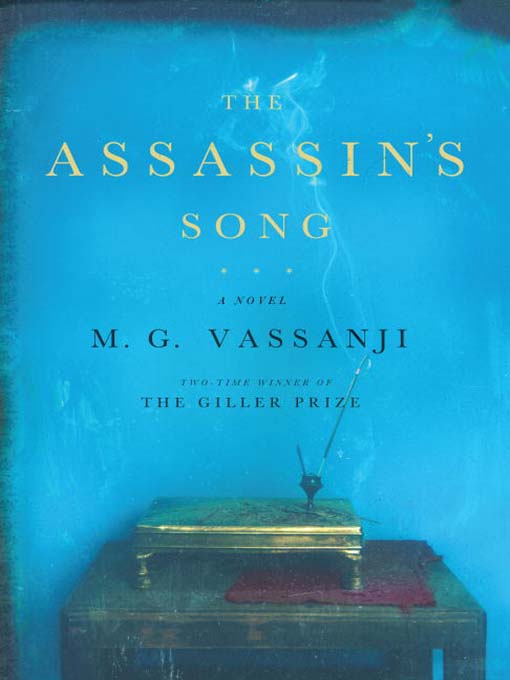
The Assassin's Song
کتاب های مرتبط
- اطلاعات
- نقد و بررسی
- دیدگاه کاربران
نقد و بررسی

June 18, 2007
The tension between India’s centuries-old spiritual traditions and contemporary religious militancy drives this memorable, melancholy family saga by two-time Canadian Giller Prize–winner Vassanji (who won for The Book of Secrets
and The In-Between World of Vikram Lall
). Karsan Dargawalla is destined from boyhood to succeed his father and his father’s father as avatar of Pirbaag, a 13th-century Sufi shrine. As the novel unfolds in fits and starts, Karsan rejects his spiritual inheritance and decamps for Harvard in 1970, against his chagrined father’s wishes. The three decades of stubborn self-exile that follow represent a sorrowful generational rift between father and son that ends when Karsan returns home after his ascetic father’s death, announced at the book’s opening. Though Sufism is a Muslim tradition, Karsan’s father considered himself “neither and both” Muslim and Hindu, “and we,” says Karsan at one point, “are respected for that.” Yet Karsan finds the shrine destroyed by a mob of Hindu hard-liners, while his younger brother, Mansoor, “militantly calls himself a Muslim” and may be involved in Islamist terrorist activities. Frequent shifts in time and perspective (including flashes of the shrine’s early history) heighten Vassanji’s evocative depiction of India’s ongoing postcolonial tumult, mournfully personalized by the fate of the fractured family at the novel’s heart.

August 1, 2007
Karsan Dargawalla is expected to inherit a great family responsibility in the Indian village of Haripir. His father is the Saheb, or the keeper of Pirbaag, the Shrine of the Wanderer, a 12th-century Sufi mystic. As such, the Saheb is regarded as an avatar of God by pilgrims and locals alike. But Karsan feels no call to follow his father, and as a young man in the early 1970s, he makes his way to America and Harvard. He eventually becomes a professor, marries, and settles in Canada, cutting all ties with his old life. But three decades later fateor karmabrings Karsan back to Haripir, where he confronts not only ancient family history but also current sectarian troubles, including his brother's possible involvement in Muslim terrorism. Vassanji is a prize-winning novelist in Canada who deserves to be better known to American readers. With its sweeping historical themes and finely drawn details, this novel may remind readers of the work of such distinguished writers as Rohinton Mistry. Highly recommended.Leslie Patterson, Brown Univ. Lib., Providence
Copyright 2007 Library Journal, LLC Used with permission.

Starred review from August 1, 2007
Like his father and many ancestors before him, Karsan Dargawalla is designated as the guardian of the Indian shrine of Nur Fazal, a thirteenth-century Sufi mystic, but he just wants to live an ordinary life. Its the 1960s, and Karsan is ablaze with curiosity about the world beyond his Gujarati village. He secretly sends an application to Harvard like a message in a bottle, and is astonished to be accepted. Reveling in the freedom of America and the enchantment of his studies, he refuses his inheritance and finds happiness as a professor and family man. But there is no escaping perfect, terrible Karmic symmetry. Vassanji, twice the recipient of Canadas Giller Prize, writes with bedazzling charm and shrewd insight as he loops back in time to tell the spellbinding tale of Nur Fazal in parallel with the circuitous and tragic journey of Karsan. As the many-faceted story unfolds, Vassanji subtly and cannily negotiates the gap between spirituality and religious fundamentalism, traces the arduous path to enlightenment, and illuminates the continuity of human experience. Richly detailed andsocially astute, this is an exceptionally sensitive novel of violent conflicts and private suffering, emotional verity and metaphysical yearning.(Reprinted with permission of Booklist, copyright 2007, American Library Association.)

























دیدگاه کاربران